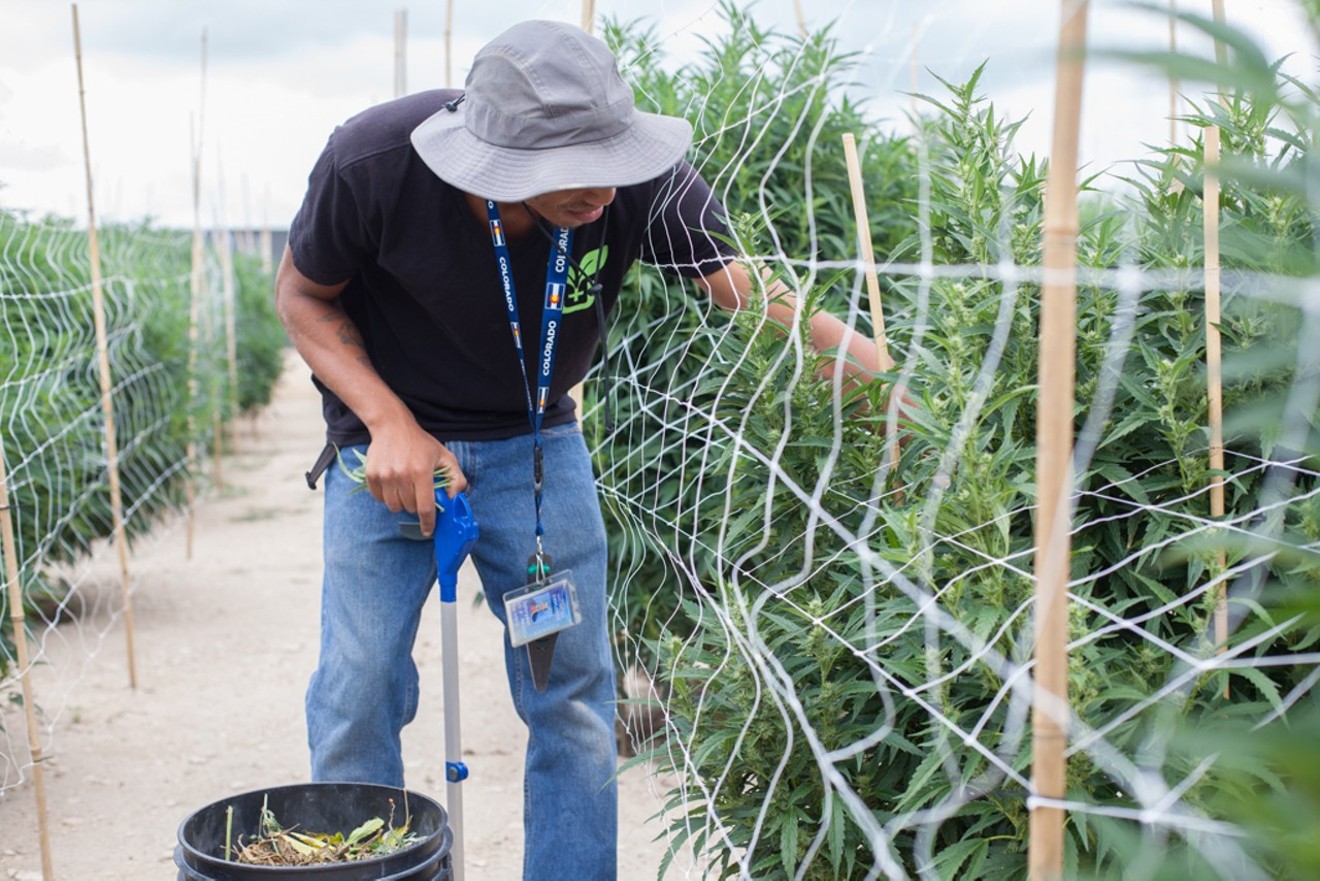Mayor Michael Hancock is sending a letter to Attorney General William Barr advocating for a change to a policy that automatically denies the citizenship applications of cannabis industry employees, according to two attorneys who brought the issue to the attention of the mayor's office.
The letter, being sent out today, April 3, specifically addresses the U.S. Citizenship and Immigration Services policy regarding cannabis industry employees, which results in an automatic denial of any application for citizen if they've been working in a business that involves a Schedule I drug.
"USCIS policy is that it’s a black-and-white issue," says immigration attorney Bryce Downer. "But in law, it's definitely not that clear at all. There are very specific things that should automatically cause denial for lack of good moral character. Everything else is essentially open to consideration."
Both Downer and colleague Aaron Elinoff work at Denver immigration law firm Novo Legal Group, where they represent multiple clients who have had their citizenship applications denied based on their work in the cannabis industry.
"Working in a lawful industry in the state of Colorado should not be grounds for denying naturalization based on lack of moral character," says Elinoff, referencing the specific terminology that can be used when denying a citizenship application.
According to Downer, anyone involved in the cannabis industry, whether as janitorial staff, a grower or a salesman, can automatically be disqualified in the citizenship application process under current USCIS policy. Downer says he's been told by USCIS staff that applicants can reapply five years after they've gotten out of the industry, but that it's still within the discretion of the USCIS officer to deny the application.
"I think that they should be weighing the totality of the person’s life in the past five years to determine if that person has good moral character. And they’re not weighing it. They should also be informing individuals of the danger of working in that industry and the impact that could have on their immigration status. They’re not doing that," says Downer.
But in an April 2 statement, USCIS says that it's tied to federal regulations and has to evaluate each application within that framework: "Marijuana is illegal under federal law, and as a federal agency USCIS is required to adjudicate based upon federal law. Despite state laws that may allow medical marijuana use, the Supreme Court has held that Congress' authority under the Commerce Clause empowers it to prohibit drug distribution and possession, even if the prohibited activities are not also illegal under state law. Further, Congress’ authority over immigration law and to prescribe inadmissibilities to the United States is absolute...USCIS evaluates each case on its unique circumstances, and examines each case based upon its unique circumstances to determine whether an individual merits a favorable exercise of discretion in order to grant adjustment."
Having an application denied is not the only repercussion people can face after they admit during a USCIS interview that they've worked in the cannabis industry.
"Their involvement in the industry doesn’t subject them to deportation. But if they travel, when they try to reenter the U.S., that can give the border patrol officer reason to believe that they’ve committed a controlled-substance violation," Downer says. And that could make deportation all but inevitable.
The mayor's full letter is available below:
[
{
"name": "Air - MediumRectangle - Inline Content - Mobile Display Size",
"component": "12017618",
"insertPoint": "2",
"requiredCountToDisplay": "2"
},{
"name": "Editor Picks",
"component": "17242653",
"insertPoint": "4",
"requiredCountToDisplay": "1"
},{
"name": "Inline Links",
"component": "18838239",
"insertPoint": "8th",
"startingPoint": 8,
"requiredCountToDisplay": "7",
"maxInsertions": 25
},{
"name": "Air - MediumRectangle - Combo - Inline Content",
"component": "17261320",
"insertPoint": "8th",
"startingPoint": 8,
"requiredCountToDisplay": "7",
"maxInsertions": 25
},{
"name": "Inline Links",
"component": "18838239",
"insertPoint": "8th",
"startingPoint": 12,
"requiredCountToDisplay": "11",
"maxInsertions": 25
},{
"name": "Air - Leaderboard Tower - Combo - Inline Content",
"component": "17261321",
"insertPoint": "8th",
"startingPoint": 12,
"requiredCountToDisplay": "11",
"maxInsertions": 25
}
]












